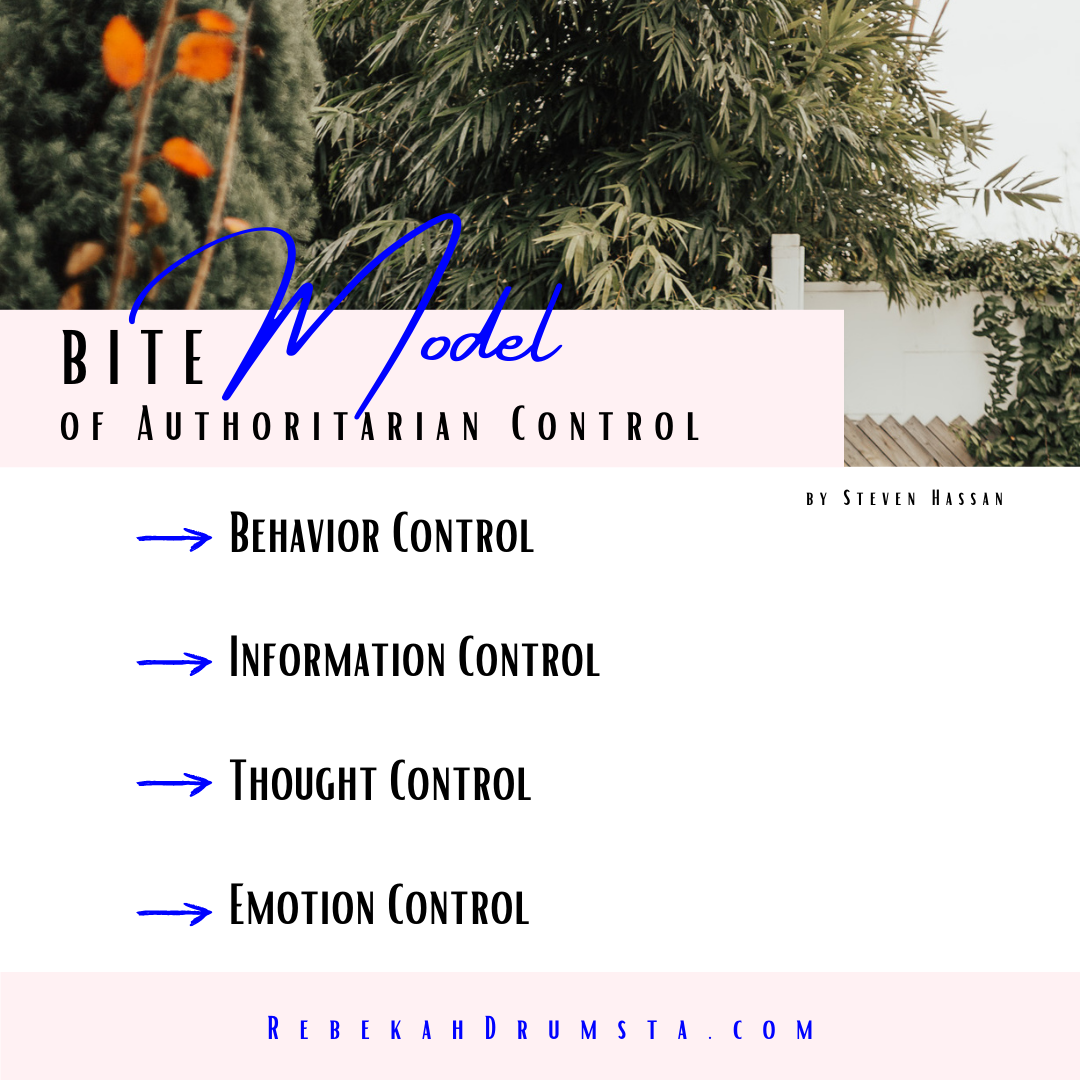Signs of Spiritual Abuse in Children and Families
/Before you jump into this post know that the topic is a complicated one, for many reasons. Understanding the effects of spiritual abuse and religious trauma is new to this era. And while I am grateful for the strides being made, much more still needs to be done to comprehend, support survivors, educate and prevent this pattern from repeating.
To my knowledge, there have been no studies completed on the impact of spiritual abuse or religious trauma on a child. We are starting to see work being done from an adult perspective, but resources are extremely limited for professionals wishing to assist those recovering from spiritually abusive childhoods. This topic matters greatly and it is why I choose to speak.
Conversations need to be initiated around signs of spiritual abuse in children, how to prevent spiritual abuse from taking place during childhood, how to recognize it and what to do when you see it and then how to recover from this type of background. The primary point of this piece on recognizing spiritual abuse in children and families is simply to start the conversation, it’s not to be right or have all the answers. As new information is brought to my attention, I will edit this article.
Identifying Spiritual Abuse
It’s human nature to make a snap judgement about a person based on their appearance and often that’s the first place we turn when we see a devout religious or spiritual family. The women might be sporting long dresses or have their heads covered with a scarf, men may have beards or tassels peeking out under their shirts, or maybe they all have a look of being in some sort of uniform. When people look a certain way, our brains just assume what they believe and what their home life must be like. But what if that’s not always the case? What if there are no immediate physical signs? What if the outward appearance isn’t a reflection of what is really happening inside the home or community? (And let me stop you from going there, no, religious or counter-cultural dress is not always a tell-tale sign of spiritual abuse.)
While it’s true spiritual abuse can have some physical features, it’s generally more subtle. Spiritual abuse first affects a person’s mind, moves into their core beliefs, and then informs their actions. Spiritual abuse intersects with psychological and emotional abuse in this way because spiritual abuse impacts mind, body and soul.
But how might a child experience spiritual abuse which results in religious trauma? It starts in the home.
Can Traditional Christian Parenting Be a Form of Spiritual Abuse?
Spiritual abuse has long been veiled as Christian parenting. People just buy into the system hook, line and sinker.
There are many reasons well-intentioned parents will fall prey to a harmful system or way of thinking. Most parents genuinely do care and never intend to harm their children. Toxic family patterns, personal traumas and a quest for finding a better way can often lead us into something that feels good or seems to have the answers we seek but might not be healthy. Maybe the parents had a physically abusive, painful or neglectful childhood, a wild teenage or college experience or they just honestly want to live a good, Christian life and this is what they were told was God-honoring. Because a respected pastor, teacher or organization supports a book or idea, it must be “Biblical,” right?
Some examples of leaders in Christian parenting for the last several decades have been:
Focus on the Family founded by James Dobson
Growing Kids God’s Way by Gary and Anne Marie Ezzo and their Babywise series.
Shepherding a Child’s Heart by Ted Tripp
To Train Up a Child – Michael and Debi Pearl
How quickly we forget that stoning a mouthy child to death is technically Biblical, but that has been explained away because in America stoning your child would land a parent in prison thus, we don’t often hear of people following through with the ancient practice. Threatening a child with, “in Bible times rebellious children were killed,” yes, but the custom of killing your kids is no longer considered Biblical parenting. Through the ages, what is regarded as Biblical has morphed with era and culture, who was ruling at the time, new discoveries in mental health and science, wars and what is happening on a global scale. This aspect has rarely been considered and our faith-filled homes have become indoctrination factories instead of safe places for children to be loved and empowered with the freedom to gently grow while learning about the vastness of God.
One major factor many authors and teachers missed is that children are not robots to be programmed the way a fallible human parent deems correct (or Biblical) at the time. Systems, formulas and methods do not work when it comes to raising children, even if you can find a Bible verse you feel backs up your theory. These promises of God-honoring, well behaved, culture changing after being raised in a peaceful home kids are laced with cross-cultural ignorance, personal preference and a desire to bring control to the daunting task of raising children and the ever shifting world around us.
Train Up a Child
Another key element in current Christian parenting traditions is that the verse, “Train up a child in the way he should go…” is woefully misconstrued.
Parents have been taught the verse should be read, “Train up a child in the way he should go…” as it’s their responsibility from God to make sure their child does all the things, believes all the things and is set on the trajectory the parent thinks is right. This so easily welcomes an authoritarian or superiority method of parenting.
Instead of a parent imparting all their dominance, character molding practices and adhering to strict behavior modifications, what if that verse is supposed to be understood this way, “Train up a child in the way he should go…?” This would mean the parents raise a child based on what is best for the child – the child’s bent, gifts, interests, personality and dreams. It has much less to do with Mom and Dad’s rights or authority, all-knowing God-like supremacy of the parent, the child’s behavior control and submissive moldability and a great deal more focus on what is best for the individual child. It might take a lot more work for the parents to first, work on their own triggers, issues and traumas and then, to make a custom plan for each child instead of picking a “Biblical” approach someone sold with their formula and making the whole family stick to those definitive roles and limitations.
What so many deem as Christian parenting is nothing more than an authoritarian model which uses the basis that children are born evil with evil desires and they must be molded into decent people to be acceptable to God. Forget that each infant is created in the image of God and is therefore due respect, dignity and love. Children are seen as sinful creatures and their parent’s job is to save them from themselves and Satan.
The whole concept of Christian parenting has been twisted into something which can only be classified as abusive at the core. It’s time this changed.
What Are Signs a Child is Experiencing Spiritual Abuse?
Based off what we know from listening to adults raised in spiritually abusive homes and communities, kids are the ones hurt the deepest. And while each set of circumstances is different and each person’s experience varies, there are some common themes I’ve noticed.
If you are concerned about a child you know or care about, here is a good place to start. These are some caution flags to look for in that child:
Too mature for their age.
Exhibits deep fears.
Overactive conscience.
Perfect or subdued behavior.
Lack of exposure to the outside world or what would be considered normal.
No sense of knowing their own mind or having a free will.
You are seen as scary, harmful, or dangerous to the child.
Child is hindered because of their gender.
Perfectionism.
Anxiety.
Signs of Spiritual Abuse in Families
At home, the BITE Model is likely a core structure and is possibly extreme. Every aspect of a child’s life is carefully controlled - behavior, information, thoughts and even emotions - all have rigid sets of guidelines based on what is allowed/not allowed or what is sinful/not sinful.
Other signs a family may display can, but do not always include:
Parents are always right and are the unquestioned final authority.
Children have little or no autonomy or agency.
Spanking or physical punishment is the discipline method of choice.
Contact with extended family may be cut off or limited.
Strict adherence to rules or methods.
Frequent, and maybe drastic, changes in lifestyle – diet, dress, movies, rules, living conditions, etc.
Lack of any form of health care.
Binary or black/white thinking.
Diagnosis or evidence of Autism, depression, etc. are ignored or seen as evil/Satan at work.
At home, the child may be growing up with:
Shame
Manipulation
Fear
No decision-making skills.
Always submitting to authority, no matter what.
Physical Abuse
Sexual Abuse
Verbal Abuse
Safe Parenting
Children need safe adults and safe spaces to express emotions, normal childhood fears and try out all the new feelings and thoughts they have growing up. So often our religious formulas don’t allow for to just be kids with no images of an evil, dastardly demon trying to control their lives. We blame it on sin, desperately wicked hearts and strong wills that must be broken.
Instead, view your child as a whole person, made in the image of God. It is an honor to watch them learn and grow. Your child is not a broken thing. Your child is not evil. Evil is evil, not your baby. A child who is free to think and ask questions, free to express themselves, free to learn and explore, free to be creative and test boundaries and free to believe differently than the parent is a child who is also free to experience the fullness of God without hinderance.
We are experiencing the fallout of an entire generation of children raised in a system where parental spiritual abuse has been glorified. It’s not your job to control your child. It’s not your job to create copies of yourself. It’s not your job to raise children so obedient they follow a leader without question. Your job is to not be the stumbling block which keeps them from God and a healthy, vibrant life.
This article is not intended to treat or diagnose any condition.
Rebekah is not a licensed therapist or clinician. Any advice or opinions given on this site are strictly her own observation and insights based on personal experiences and study. It should in no way take the place of professional assistance.



